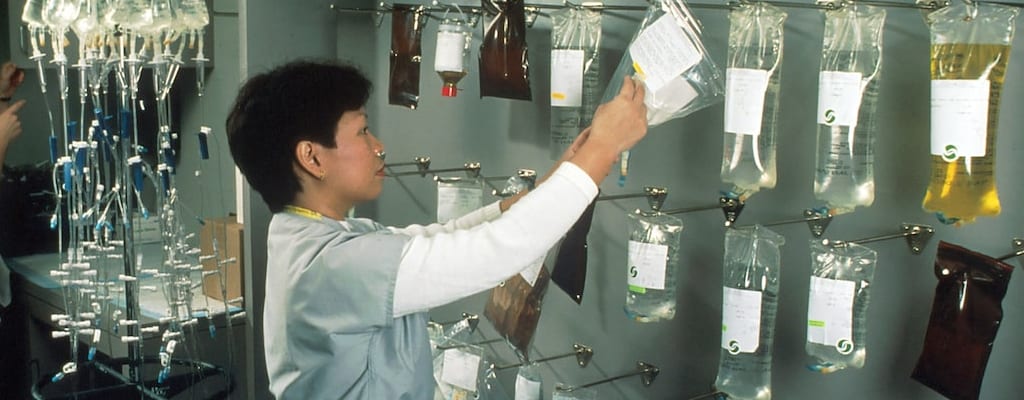under the influence: Idiom Meaning and Origin
What does ‘under the influence’ mean?
The idiom "under the influence" means being affected by drugs or alcohol, typically to the point of impaired judgment.

Idiom Explorer
The idiom "worse for liquor" is used to describe someone who is visibly affected by the consumption of alcohol, often implying that they are behaving in a reckless or foolish manner.
The idiom "under the weather" is used to describe someone who is not feeling well or is sick.
The idiom "under the impression" means to believe or think that something is true or to be convinced of something, often based on limited or mistaken information.
The idiom "under the gun" means to be under pressure, facing a tight deadline or in a difficult situation where one is expected to act quickly and decisively.
The idiom "under a spell" means to be enchanted or captivated by someone or something, often to the point of being unable to resist their influence or control.
The idiom "top-heavy with drink" means someone is heavily intoxicated or drunk. It implies that the person has consumed a large amount of alcohol and is now struggling to maintain their balance or control over their actions.
The idiom "tired and emotional" refers to someone who is drunk or intoxicated. It suggests that the person's judgment or behavior may be affected due to their inebriation.
An idiom meaning to consume a large quantity of alcohol, usually resulting in getting drunk or excessively intoxicated.
The idiomatic expression "out of one's face" means to be extremely intoxicated or under the influence of drugs, resulting in irrational or erratic behavior.
The idiom "on acid" is used to describe an altered state of mind or perception, often characterized by intense hallucinations or extreme sensory experiences. It originated from the association with the hallucinogenic drug LSD, commonly known as acid.
Unveiling the Impacted State
The idiom "under the influence" is widely used in the English language, particularly in the United States. It is a phrase that carries a specific meaning, often referring to a state of being affected or influenced by something or someone. The origin of this idiom can be traced back to the early 19th century, and it has since become ingrained in everyday language.
One of the primary uses of the idiom "under the influence" is to describe a person who is intoxicated or impaired by the consumption of alcohol or drugs. In this context, it is commonly used in legal and law enforcement settings to refer to individuals who are deemed unfit to operate a vehicle due to their impaired state. The idiom serves as a euphemistic way to convey the notion of impairment without explicitly mentioning alcohol or drugs.
Beyond its association with intoxication, the idiom "under the influence" can also be used in a broader sense to indicate the impact or effect that someone or something has on an individual. This could refer to a person being emotionally influenced by another, or to the sway that external factors have on someone's actions or decisions. In this regard, the idiom highlights the notion that individuals are susceptible to external influences that can shape their behavior or mindset.
The phrase "under the influence" is often used colloquially, and its usage extends beyond formal or official contexts. It can be found in various forms of media, such as literature, music, and film, where it is employed to convey a particular state of mind or to emphasize the significance of external forces on an individual's actions or choices. Its versatility and widespread usage contribute to its status as a well-known idiom in the English language.
One related idiom that is often used synonymously with "under the influence" is "in one's cups." This idiom has its origins in the early 19th century and is typically used to describe a person who is heavily intoxicated or drunk. It conveys a sense of being under the influence of alcohol, similar to the phrase "under the influence." Both idioms serve as euphemisms for being intoxicated, allowing individuals to discuss the state of intoxication without explicitly mentioning alcohol or drugs.
Another related idiom that pertains to the use of substances is "do drugs." This idiom is commonly used to refer to the act of consuming illegal or recreational drugs. When someone is said to "do drugs," it implies that they are engaging in the use of substances that can potentially alter their state of mind or behavior. This idiom is closely tied to the concept of being "under the influence," as both expressions involve the consumption of substances that can lead to impairment or influence.
The idiom "under the impression" is another phrase that can be related to the concept of being "under the influence." When someone is "under the impression," it means that they have a certain belief or understanding about something, often based on incomplete or incorrect information. This idiom can be used to describe a person who is influenced by false assumptions or misconceptions. In a way, being "under the impression" can be seen as a type of influence that impacts an individual's thoughts or perceptions.
Similarly, the idiom "tie one on" is yet another phrase that can be associated with being "under the influence." This idiom is often used to describe a situation in which a person indulges in excessive drinking, becoming heavily intoxicated in the process. It conveys a sense of letting loose and engaging in excessive behavior. When someone is "tying one on," they are actively seeking to become under the influence of alcohol, similar to being "under the influence" in a more general sense.
Lastly, the idiom "off one's box" can also be related to the concept of being "under the influence." This idiom is commonly used in British English to describe someone who is extremely intoxicated or under the influence of drugs. It conveys a sense of being completely out of control or incoherent due to the influence of substances. While not as commonly used as other idioms, "off one's box" serves as a vivid and expressive way to describe the state of being heavily under the influence.
Despite its ubiquity, the idiom "under the influence" still holds the potential for additional exploration and interpretation. As language continually evolves, so too does the understanding and usage of idioms. While the phrase's origins are relatively clear, its ongoing presence in everyday language offers room for ongoing investigation into its subtle nuances and evolving connotations.
Example usage
Examples of how the idiom "under the influence" can be used in a sentence:
- She was arrested for driving under the influence of alcohol.
- He was not capable of making rational decisions because he was under the influence of narcotics.
- The artist's work is clearly under the influence of Van Gogh, with vibrant colors and swirling brushstrokes.
More "drugs" idioms



